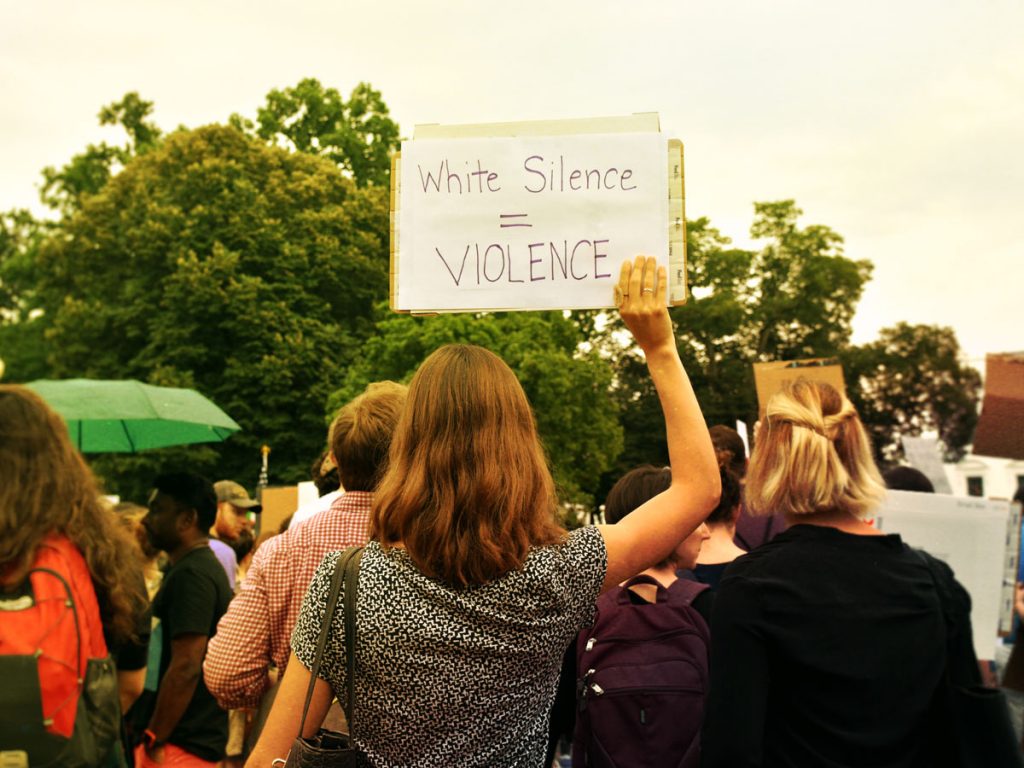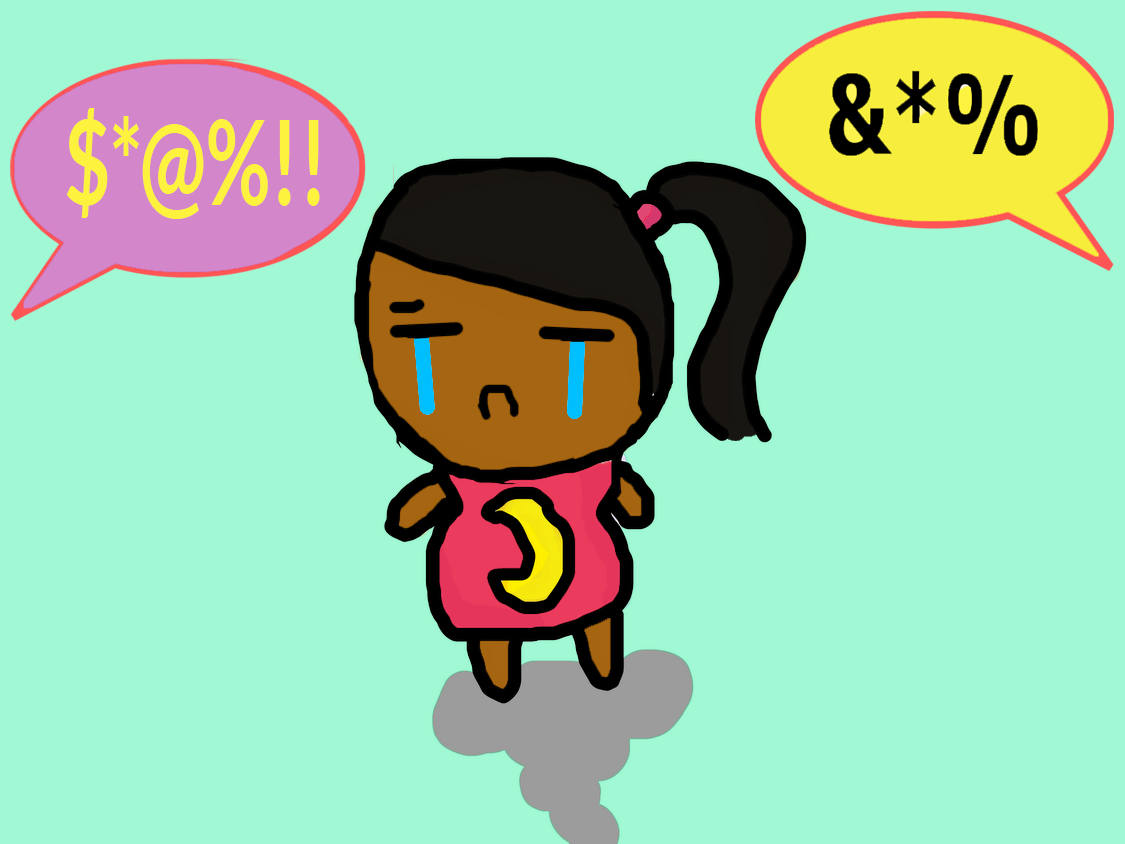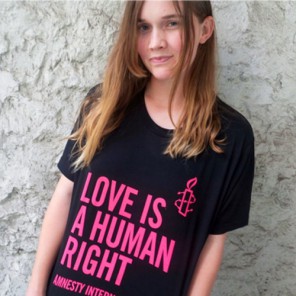How To Break ‘White Silence’

Josie, a white person, wants to have a difficult conversation with other white people about racism.
Hello white people, here are some thoughts for you on breaking the white silence. FYI I am white.
What Is White Silence?
White silence is the silence of white people in the face of racist behaviour, attitudes, micro and macro aggressions. It is the silent withdrawal in the face of racist abuse. The eye-glazing over self-enforced obliviousness to racism in all its manifestations.
White silence is this and more. It is the white person’s silence on racism when they aren’t directly presented or confronted with it: the absence of any discussion, any conversation, any acknowledgement, any confrontation or addressing of the discrimination and systematic oppression which constructs our world.
White silence is a culprit of the continuation of violent systematic racism. Silence is not only complicity – it is enabling racial oppression and its fatal consequences. It is a breeding ground of racism’s perpetuation. It is the sudden self-imposed deafness and blindness which falls sharp as a hammer when witness to racist behaviour.
A white person who says nothing in the face of racial prejudice and doesn’t discuss it in their white circles, is enabling racism. They are supporting it – every discriminatory remark or ‘joke’ let slide is them normalizing that attitude, that behaviour. A white person who never checks up on the attitude of their white friends is accepting any attitude. They consider themselves outraged and appalled by police brutality against people of colour. Against the murders which the institutional racism they benefit from perpetuates. Well, the ‘jokes’ and prejudicial judgements their white friends make which they ignore are all part of that very same beast. One they’re nourishing by keeping their mouth shut.
Does any of this sound familiar?
White silence is the privilege of choice to ignore and avoid racism. It is the denial of the responsibility of the role of white people to destroy the oppressive mechanism that they created. It is the malicious amoral void that stands between many white people and their friends, relatives, and acquaintances where racism goes undiscussed. The void into which attitudes and behaviours go unchecked, unacknowledged and disappeared from sight and mind.
Six Crucial Pitfalls To Breaking The White Silence
1. ‘I am definitely going to bring this up with my brown friend…’
Stop right there. Do not choose to break the silence with your friends and relatives of colour. The point of speaking out about racism is to educate, challenge and prevent other white people’s racist behaviour and their perpetuation of white supremacist mechanisms. You should never force the topic of racism on a person of colour unless they explicitly want to engage with you on it – it can be very triggering, exhausting or just generally unwanted so make sure you focus on the white people around you. They are the ones who are the problem.
2.’I agree with all of this. Job done.’
Having opinions alone is not enough. Thinking in your head ‘Yes I am definitely against all racism. I want the system crushed…’ and these sentiments leaving your head once in a blue moon, is not enough. Challenging white perpetuation of racism with your voice and actions is a daily responsibility.
3. ‘I retweet things on social media hoping my white friends will see and get the message…’
So this will clearly not instigate any actual change. It is good to be active and call out oppression on social media but more importantly, you need to be physically having the conversations in the real world – directly, regularly. See something unacceptable on social media? After shutting it down, call that person, go and see them. It’s not just the thing they said but all the prejudice behind that which must be addressed. If you don’t do this nobody will.
4. ‘I discuss white privilege and the system of racial oppression all the time… (with other white people who already completely agree with me and do more than I do in terms of educating themselves and others around them).’
Fine, but no. It’s good to do this – but to only do this is useless. Talk to white people who don’t agree with you and who don’t already engage with this topic. And, if they do supposedly agree, what are they actually doing about it?
5. ‘My set-in-his-ways dad will take decades of convincing.’
Well we don’t have decades. These conversations are urgent and their lack has devastating daily consequences. Breaking the white silence at your own snail’s pace, aka four uncomfortable half-hearted conversations a year with your ‘I am always right’ father isn’t good enough. Get over it and have the difficult talks. The more you do so the easier it will become.
6. ‘I don’t pose a problem, I’m already against racism.’
Ok… but can you be sure? What does that actually mean – in what ways are you ‘against’? What are you doing to actively dismantle racism? Holding that opinion about yourself is only benefitting you – it needs to take shape in your words and actions. Be very cautious about considering yourself fully ‘woke’, ‘anti-racist’ or an ‘ally’ – chances are you still have massive amounts of listening, learning and unlearning to do, as well as oppressive behaviors, beliefs and prejudices you have not yet become aware of or fully addressed. Do this work. It’s up to nobody but you to educate yourself and confront the oppressive practices and beliefs of yourself and those around you.
Eight Steps To SMASHing Your Silence
1. Intervene if you ever witness racist abuse, or discriminatory behaviour towards a person of colour and shut it down immediately.
Make sure the person receiving the abuse is safe. If possible find out how they want to handle the situation, e.g. distance themselves/ report the abuser etc. If they are not safe, or the abuse (verbal or physical) does not stop, call the police – hate crimes are illegal. If you are not sure what you are witnessing intervene and double check.
2. Call out discriminatory attitudes and behaviours however small or large.
Be it jokes, use of language, judgements etc. This is essential. Other white people’s silence needs to be called out to. Discuss it all – if you make them uncomfortable or distressed it’s means the conversation was sorely needed. People are usually far far more concerned about being considered racist than about the actual impact of their words and actions. This in itself is very problematic and needs sorting out.
3. Bring up racism with white people.
Have the conversations regularly: the existence of systematic racism, white privilege, white responsibility, why reverse racism doesn’t exist, their own attitudes and behaviour. Be prepared for defensiveness, hostility, hurt and anger. Deal with it. Make sure to follow up on these conversations down the line, has the person made any progress, done some learning, been thinking about what you talked about? Be persistent. Work at it hard and often.
4. Educate yourself continuously.
It’s important to arm yourself with as much knowledge as possible so that when you do engage in these conversations you can be effective and aren’t just basing things upon your personal opinion. Diversify your media and reading material. Accept that you yourself still have a long way to go in terms of continuously learning and re-learning about the system of racism, its impact, its profoundly important history, politics and its existence in your person, your life, your relationships and surroundings.
5. Break the silence in all your white spaces, not just those that are convenient for you.
‘I’ll talk to my really open-minded and understanding best friend’, okay that’s good. This is probably a good place to begin and springboard from. But do not solely talk to this person and then feel triumphant. Each conversation is important, but what about your other friends, elderly relatives, extended family, colleagues and partner/s?
6. Accept that your feelings are not the priority.
Breaking the white silence can cause tension, upset and more in your relationships. This kickback only goes to show how very necessary being vocal is. Don’t get caught up in your own discomfort or frustration, or that of your white counterpart. You and the white person you are talking to benefit from this system every day. You exist quite possibly because of and certainly through it. It is those excluded by the constructed category of whiteness who are made to suffer, not you. Don’t lose sight of that in your conversations.
7. Be prepared for retaliation when breaking the white silence.
Be prepared to be shut down, dismissed, made to feel like you are the problem – this should reinforce your conviction not demoralise you. These reactions show how important it is to have these conversations. They are just a minuscule glimpse of the kind of response many people of colour receive on a daily basis. So it is far better that you are the one faced with this backlash and hostility. It is our responsibility to deal with this and reduce as much as possible the amount that people of colour have to be confronted with such behaviour.
8. Listen to people of colour.
Here is where you can be quiet. People of colour have lived experience of racism, you can never fully understand or empathize with what they go through. Do not pretend otherwise. People of colour are silenced enough by white supremacy and its institutions; your role is to listen fully and appreciate their sharing when they choose to do so. Do not to show off your supposed ‘woke-ness’ or anti-racist efforts. It’s the minumum obligation as a white person, not something you should expect awe or gratitude for. Practice humility.
These suggestions are in no way exhaustive. There is so much work to do and so many ways to go about it. Do not only take my word – a white person – with my own biases to address and learning to do.Go listen and learn from people of colour who have spoken and written about these issues (and an infinity of other issues) first and foremost. Make sure you pay to consume the works of their emotional and intellectual labour, then review it, shout about it, buy it for your friends. Here is a very short list of recommendations of where to begin listening and learning from.
Media platforms
Everyday Feminism (they offer a course ‘Healing From Toxic Whiteness’)
Magazines
Azeema, ed. Jameela Elfaki.
Consented, ed. Amit Singh, Ella Jay Taylor, Mike Pope & Natalie Fiennes.
gal-dem, ed. Liv Little.
Burnt Roti, ed. Sharan Dhaliwal.
Skin Deep, ed. Anuradha Henriques & Lina Abushouk.
Books
‘Why I’m No Longer Talking to White People About Race’, Reni Eddo-Lodge.
‘The Good Immigrant’, ed. Nikesh Shukla.
‘From the Ruins of Empire’, Pankaj Mishra.
‘The History of White People’, Nell Irvin Painter.
‘Open Veins of Latin America’, Eduardo Galeano.
Podcast: Say Your Mind (@SayYourMindPod), Kelechi Okafor.
If you want to give me recommendations or any other feedback I would be very keen to hear from you.
What are your thoughts? Let us know in the comments below.








